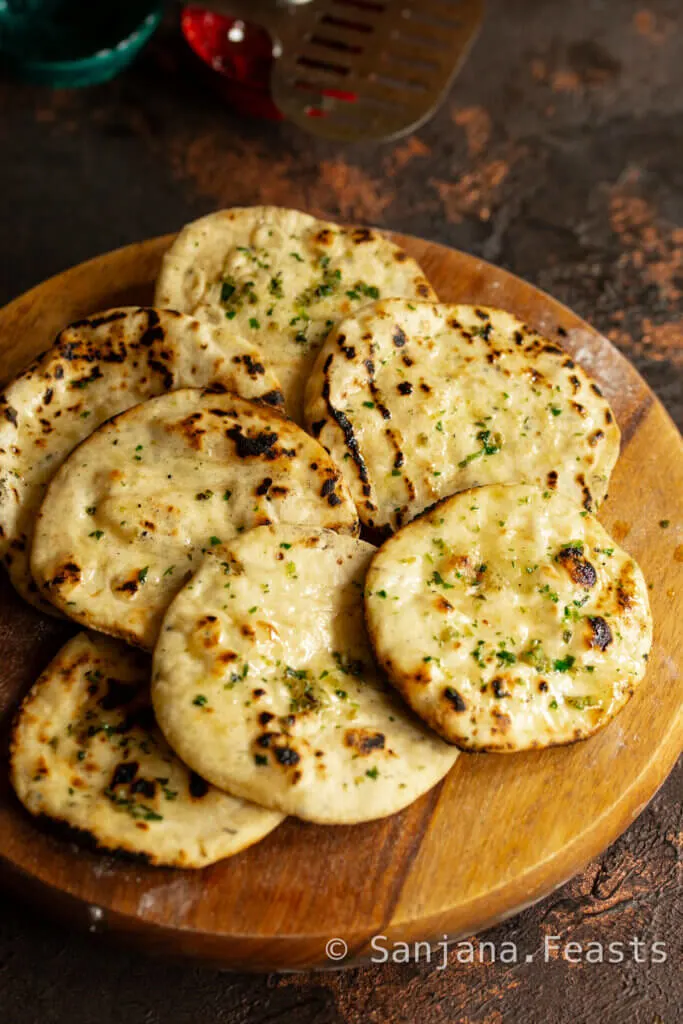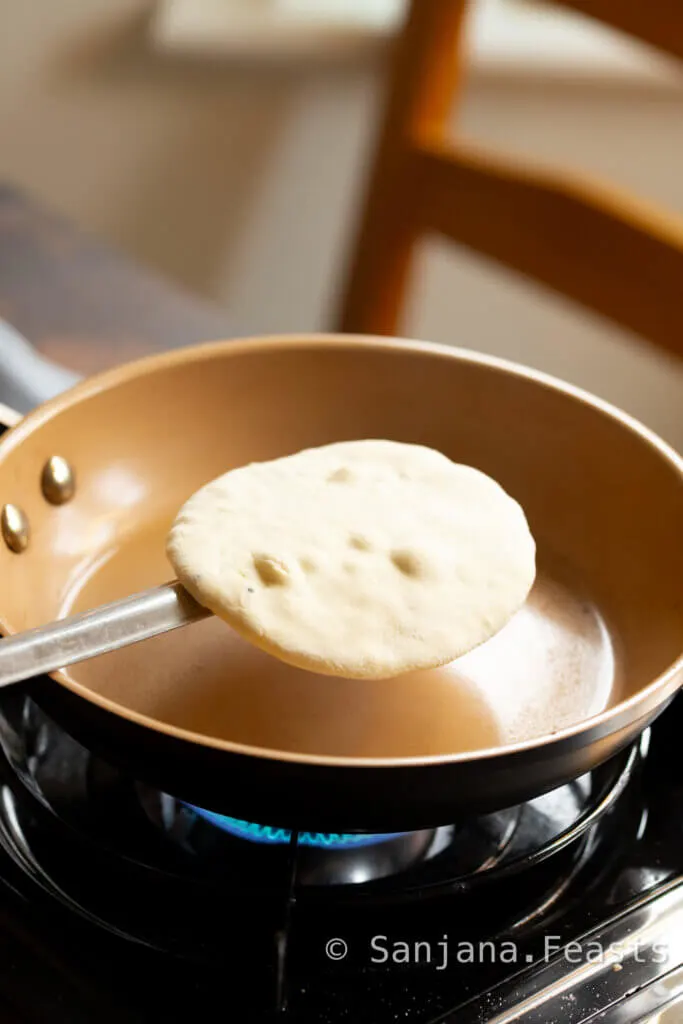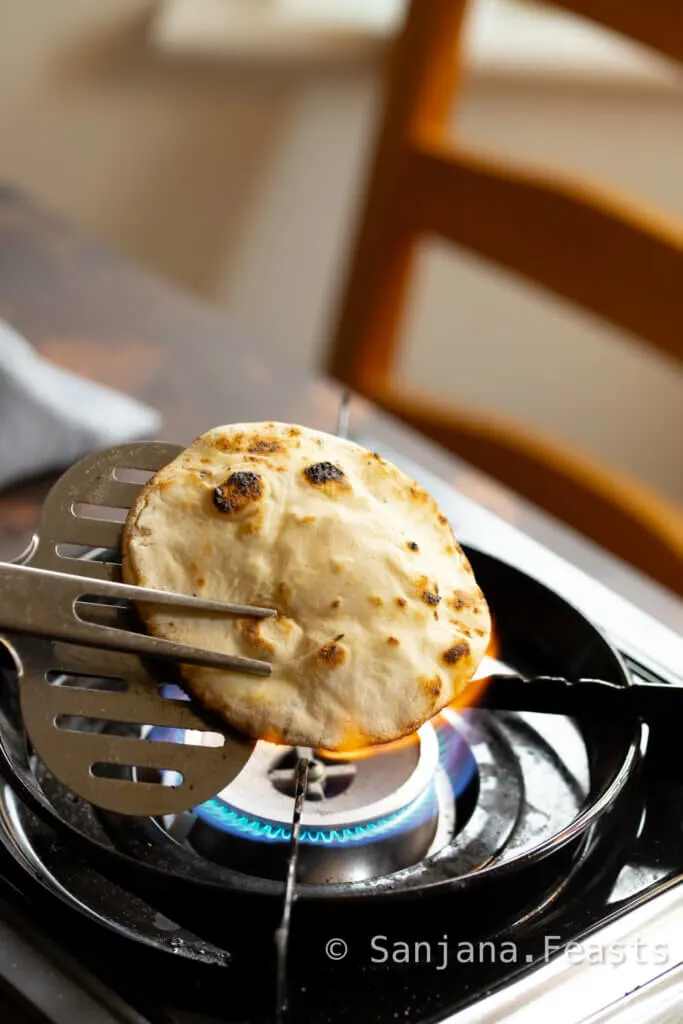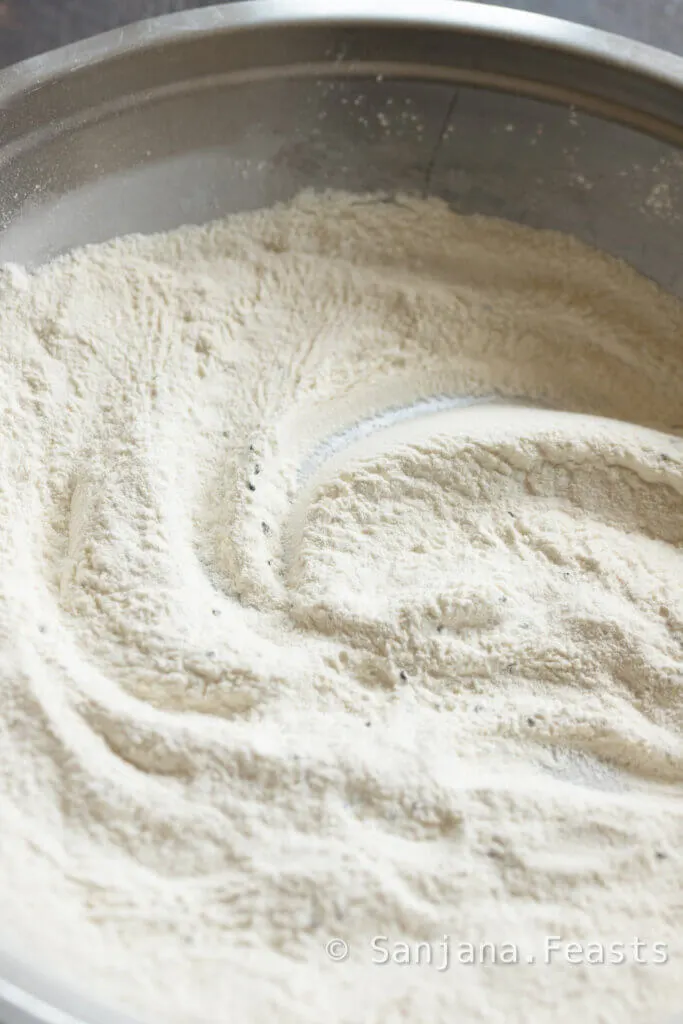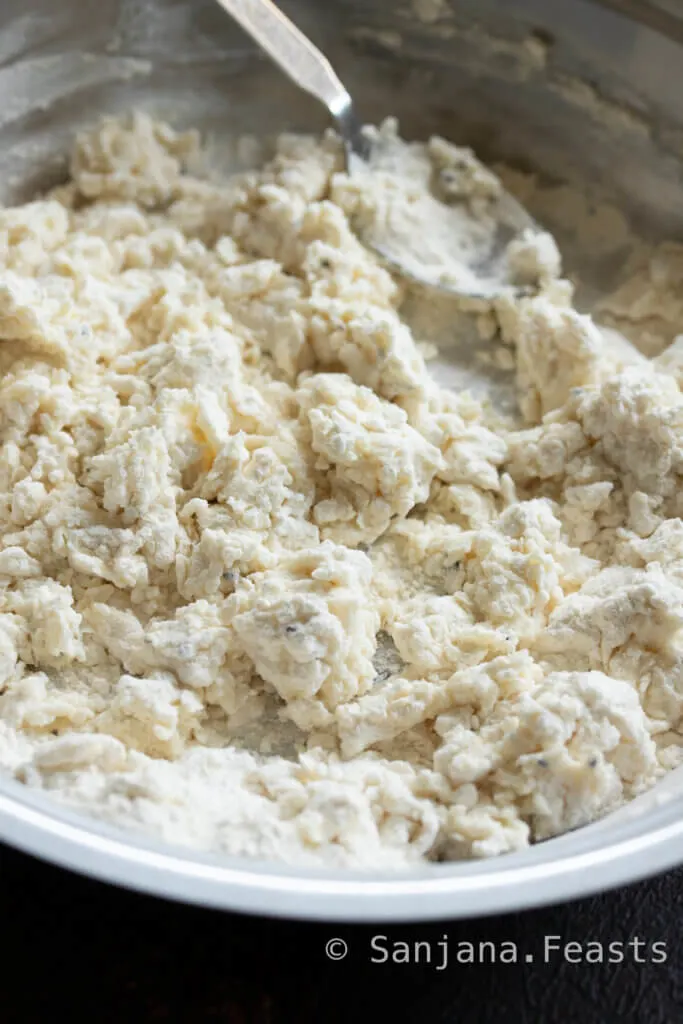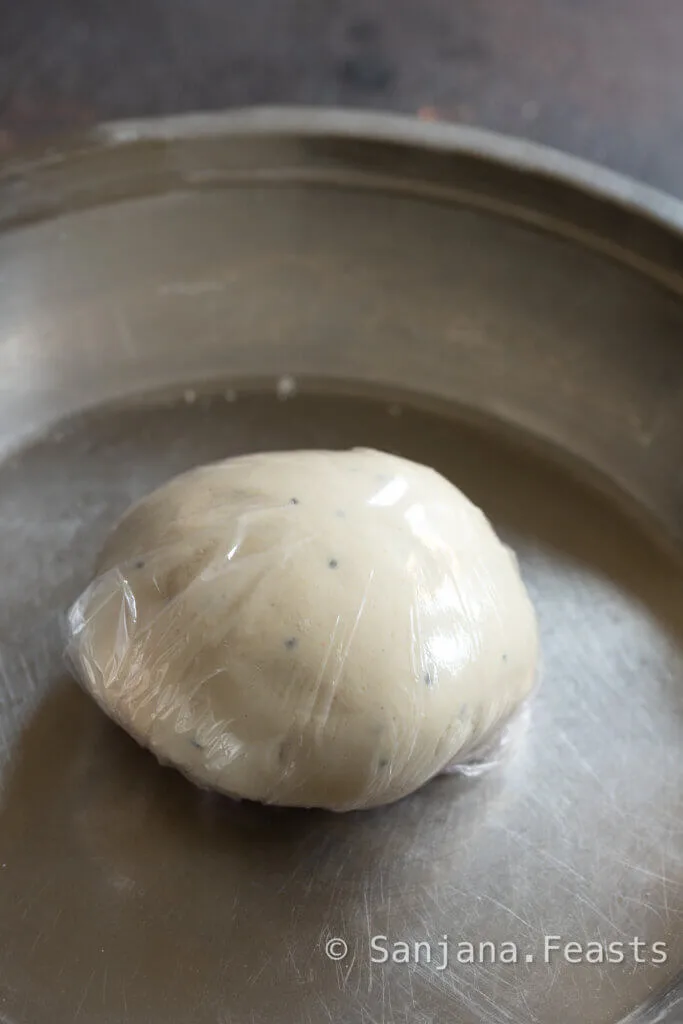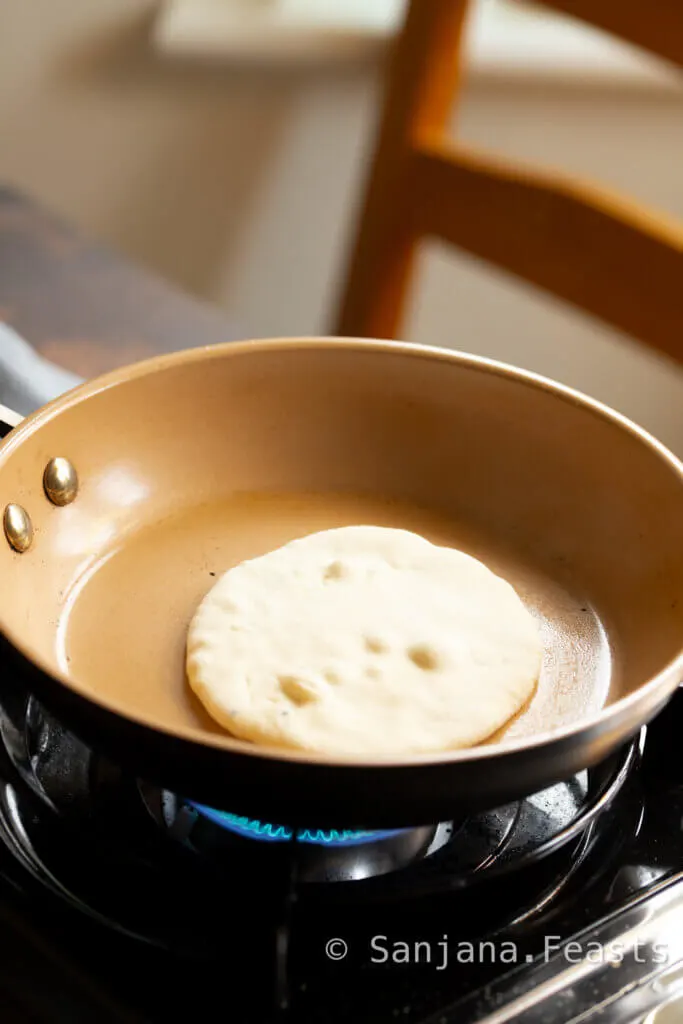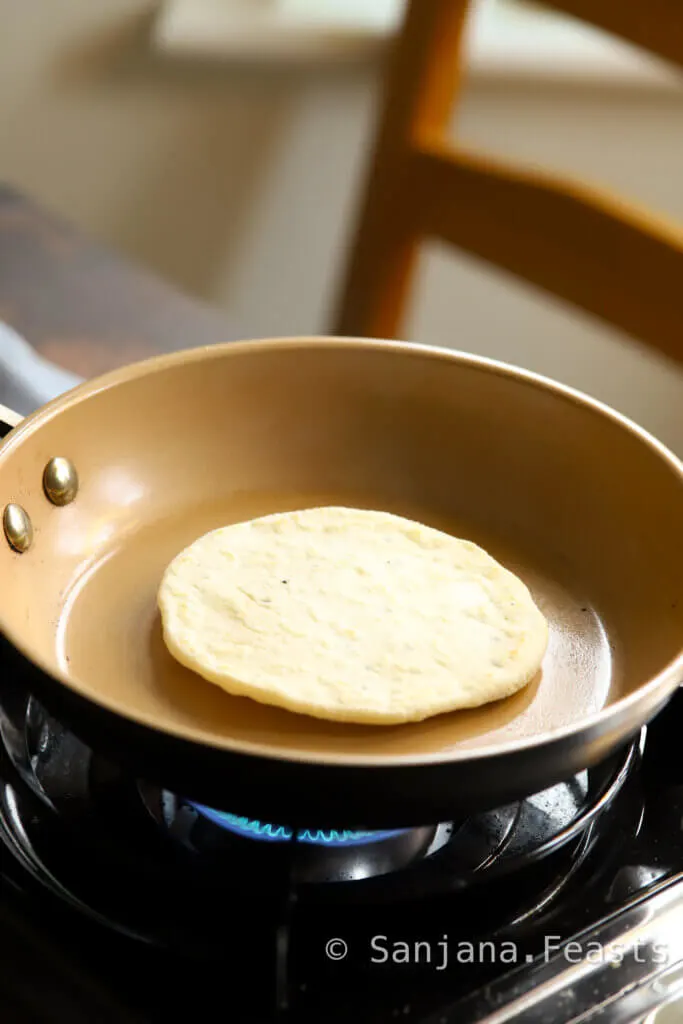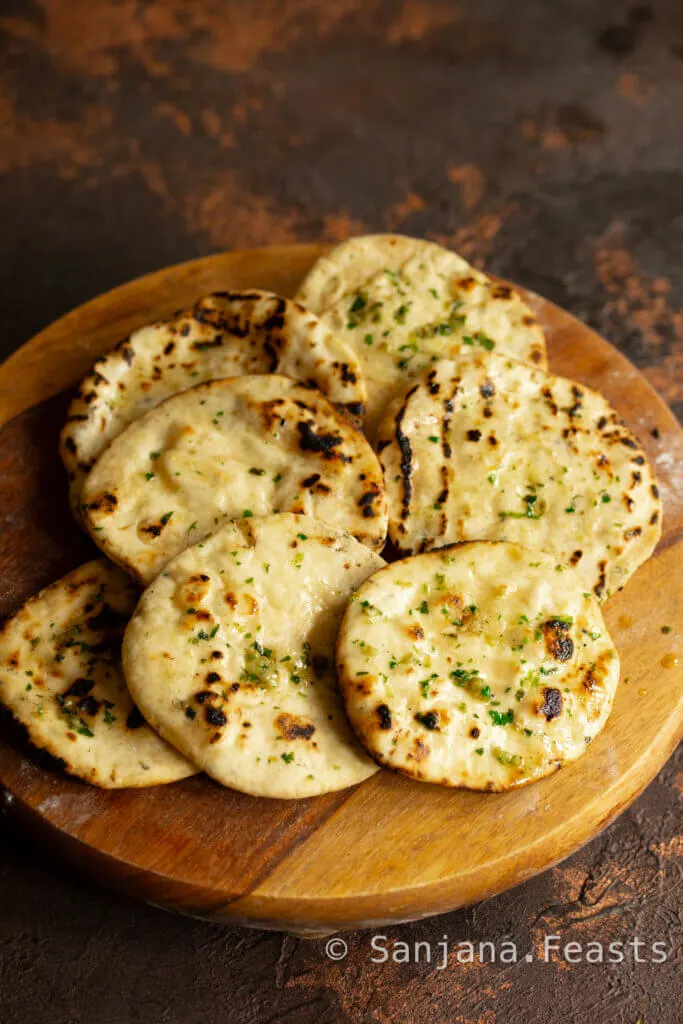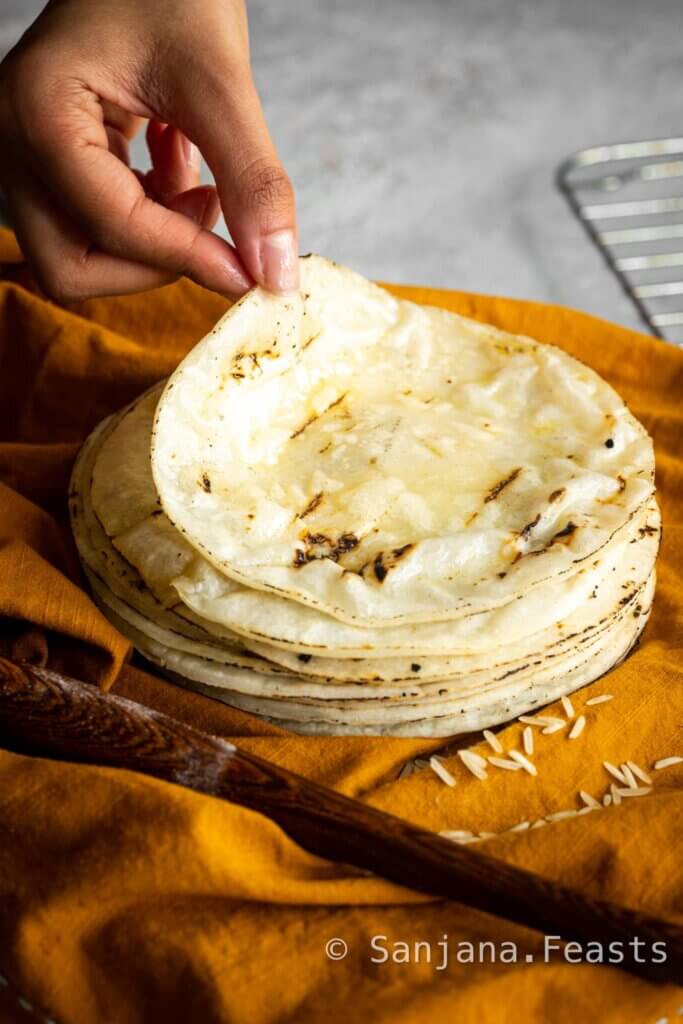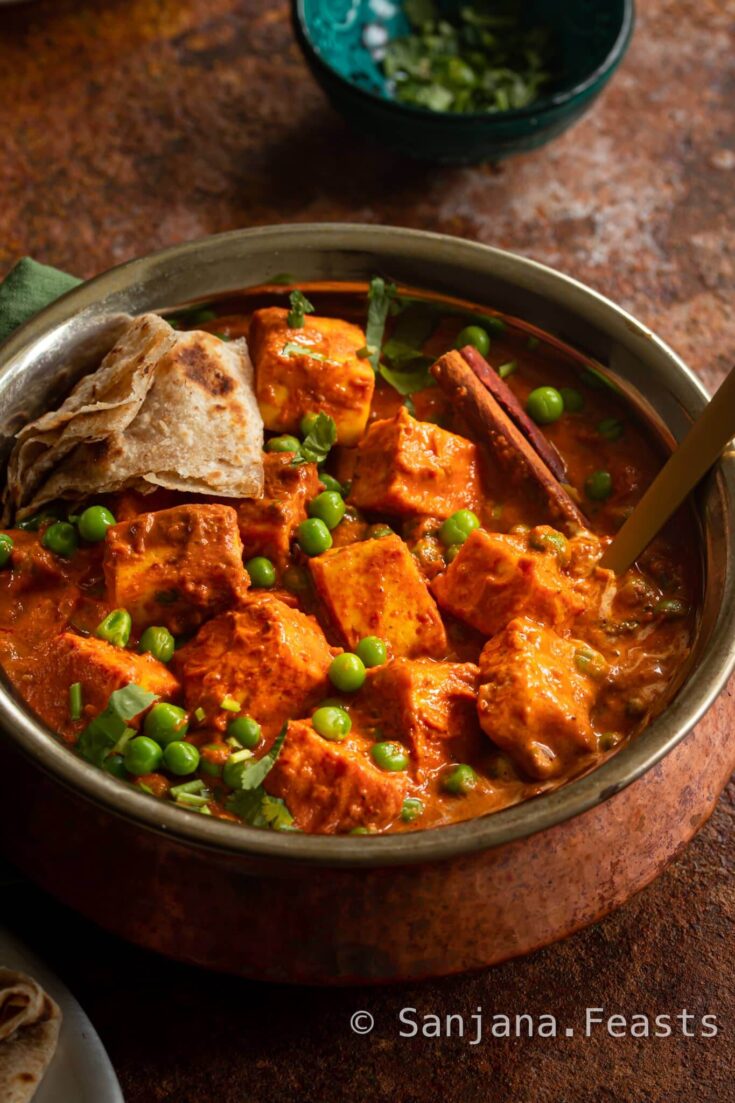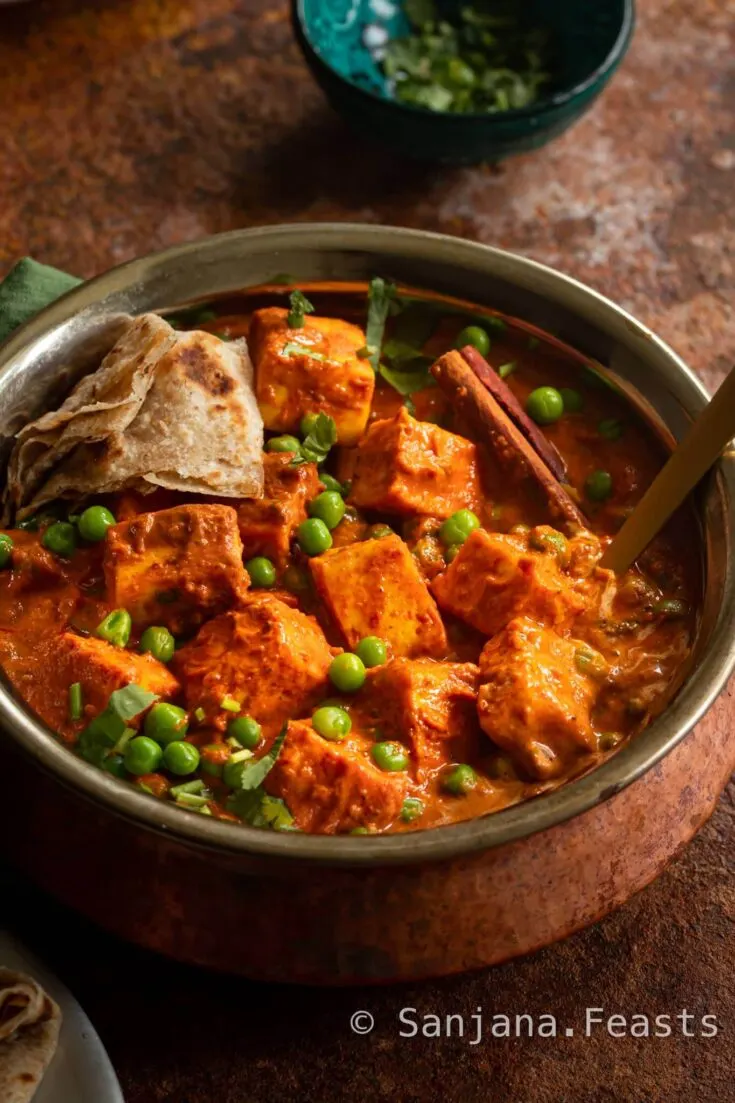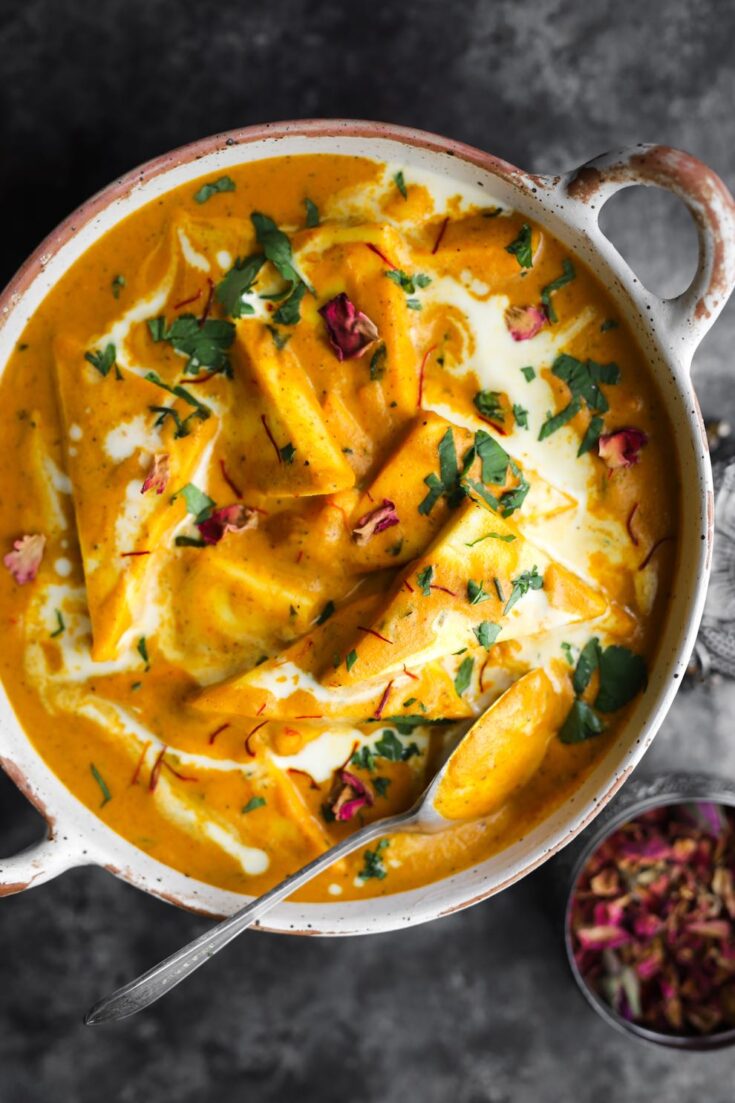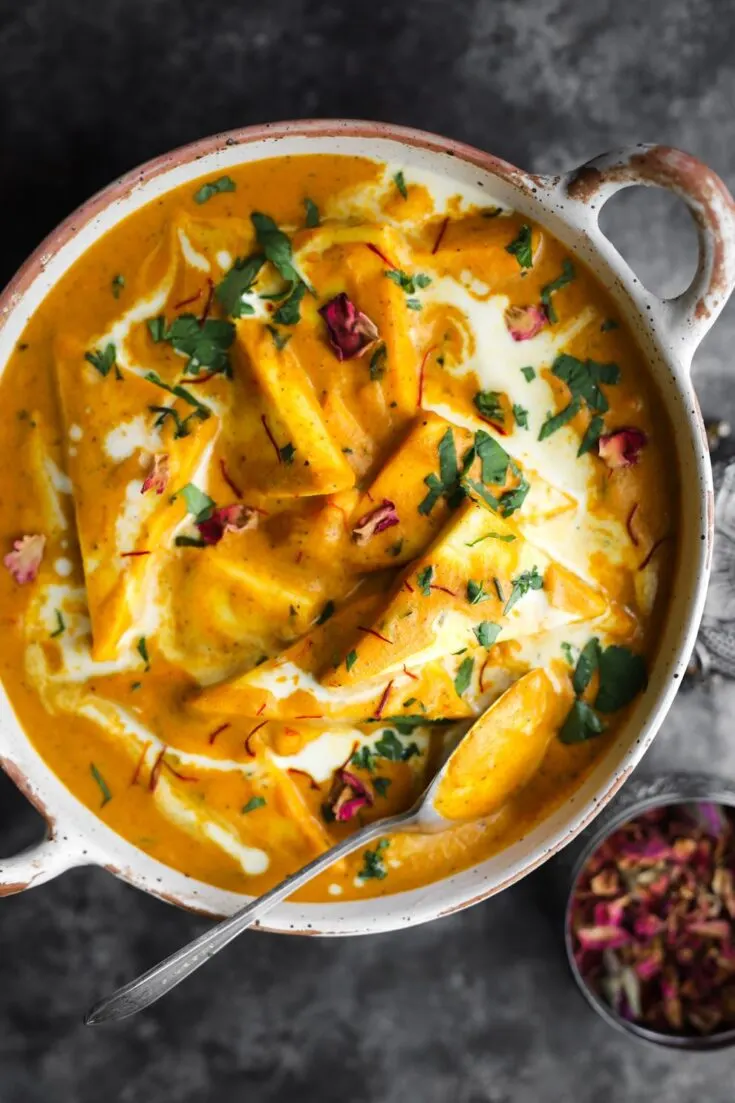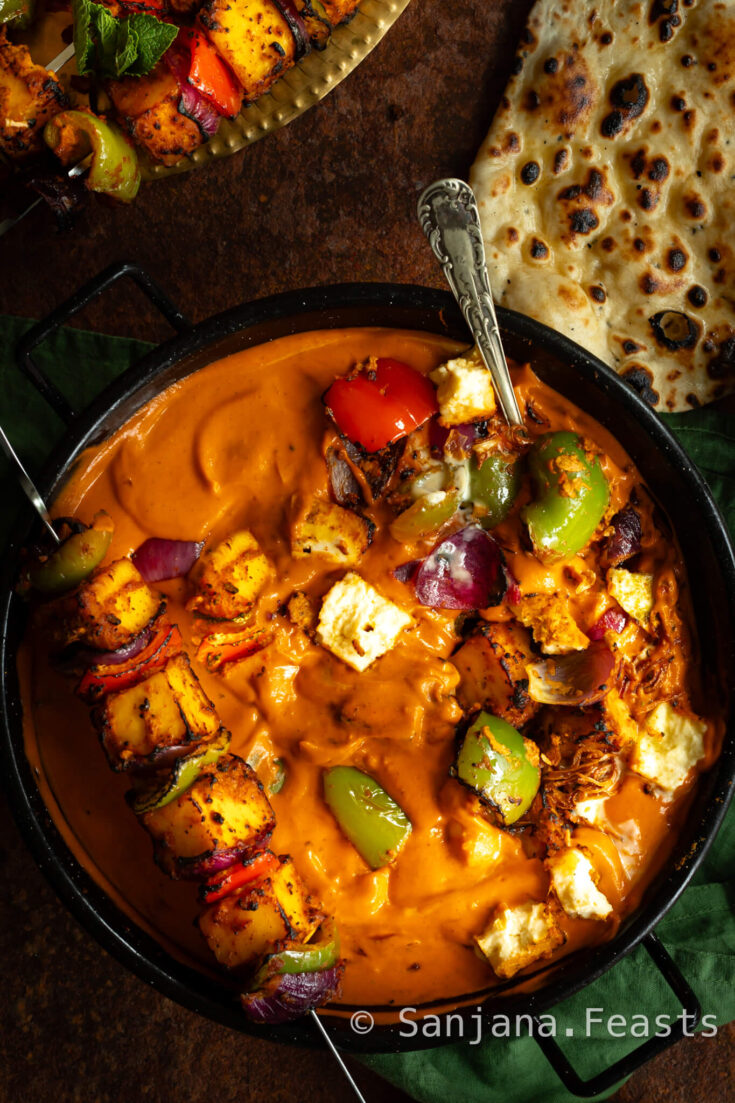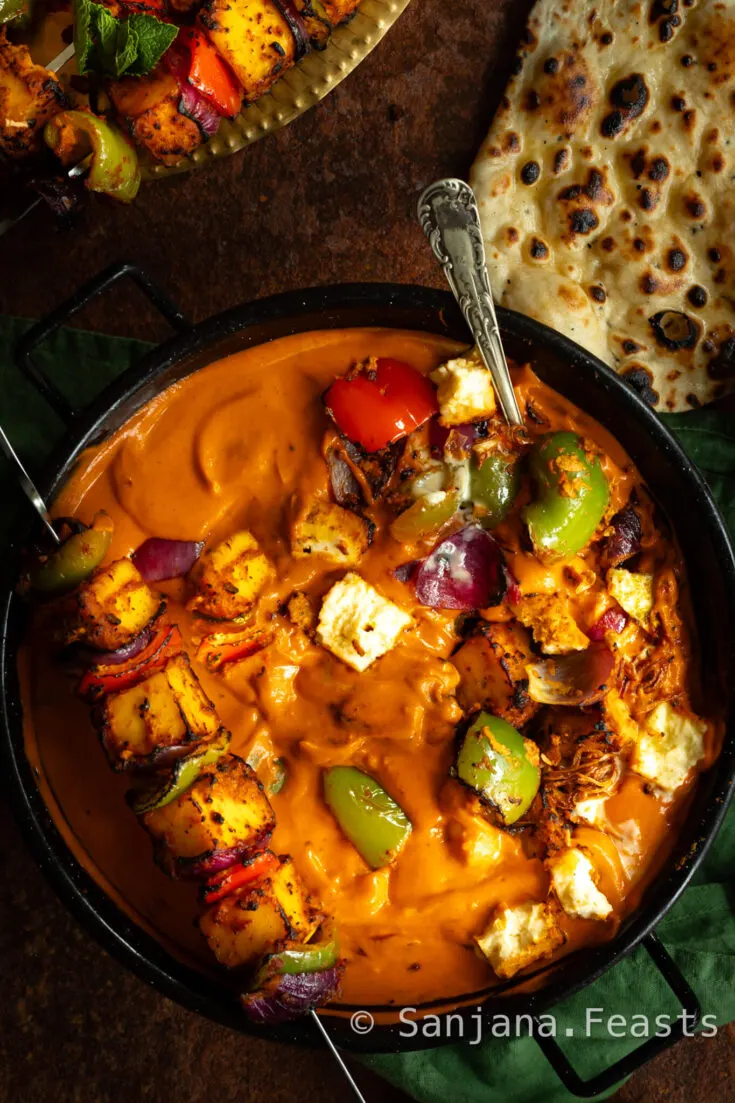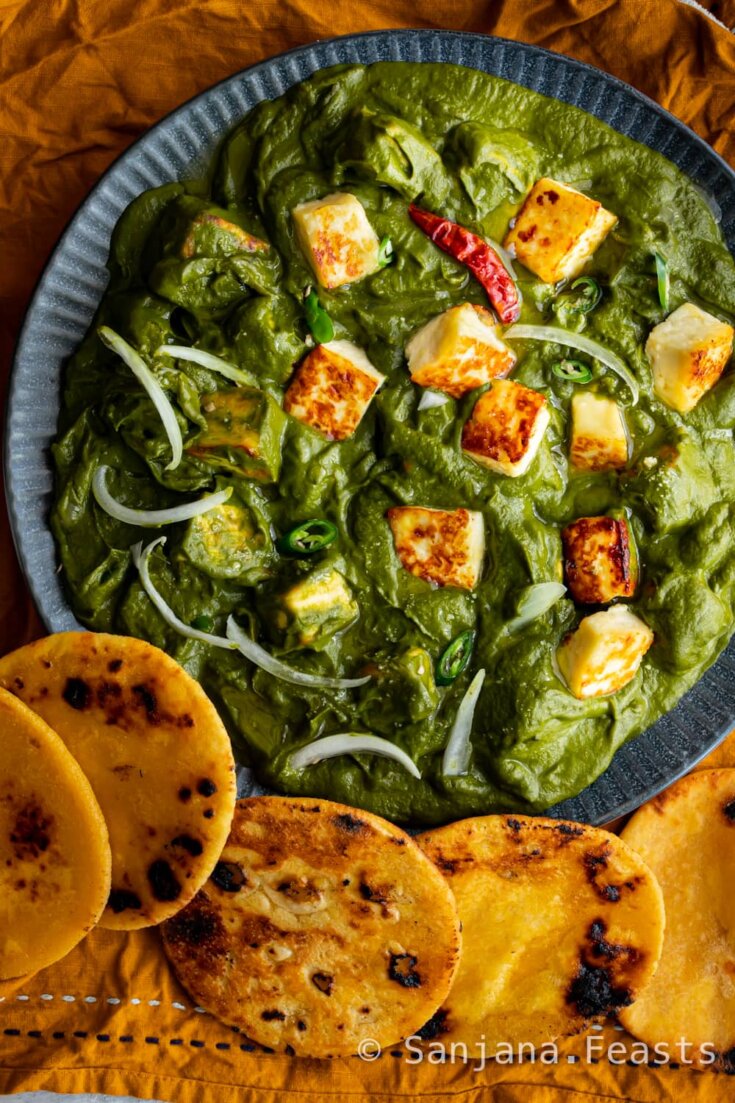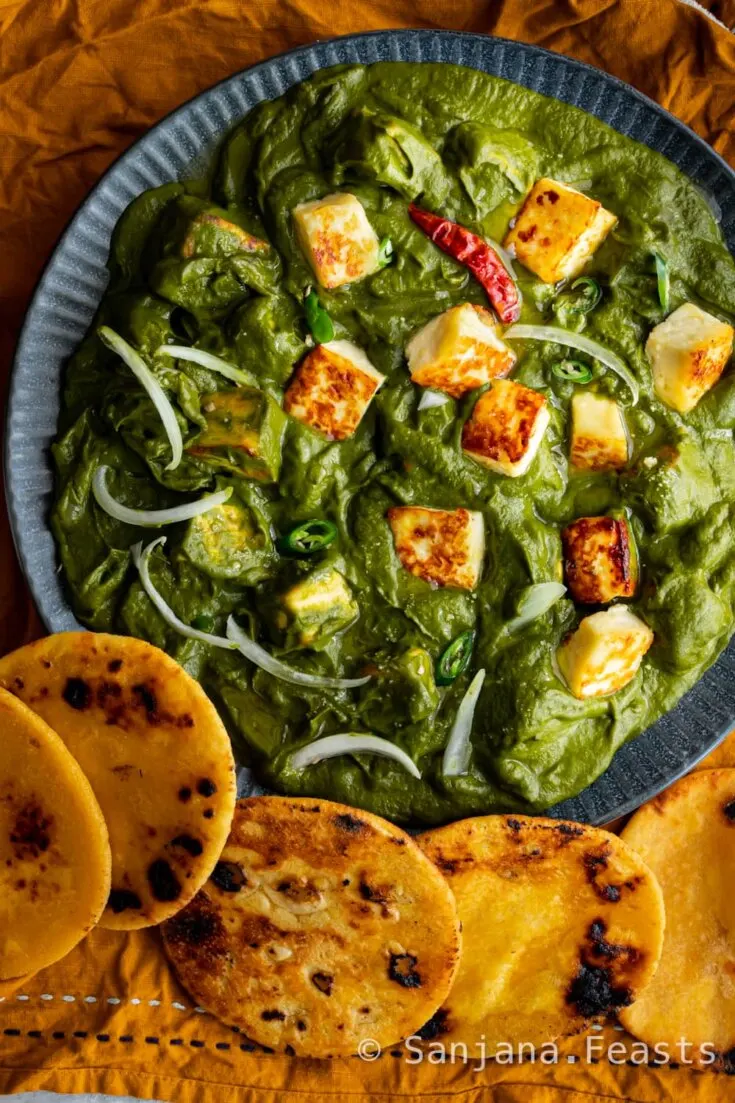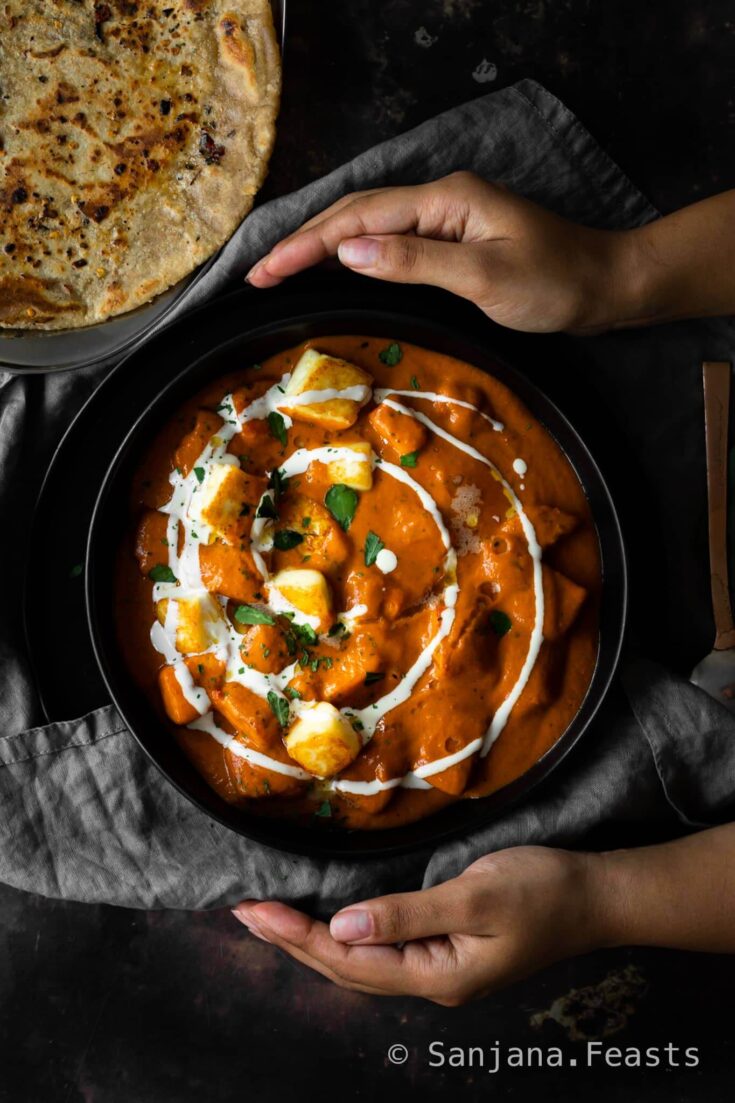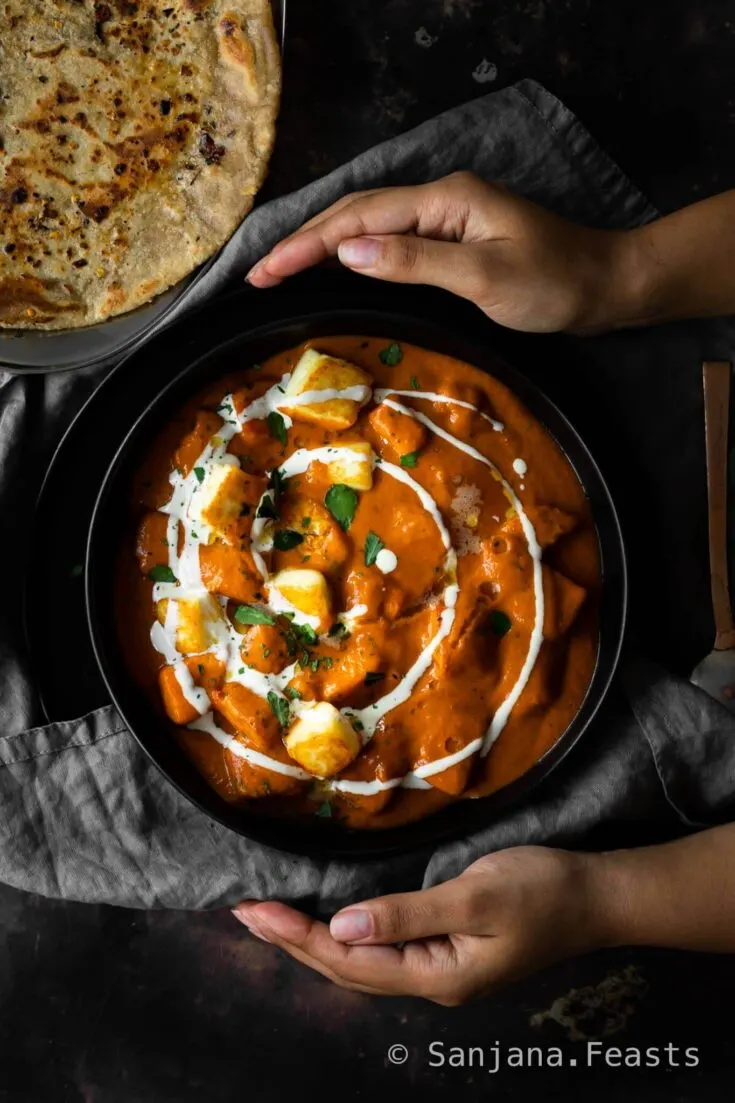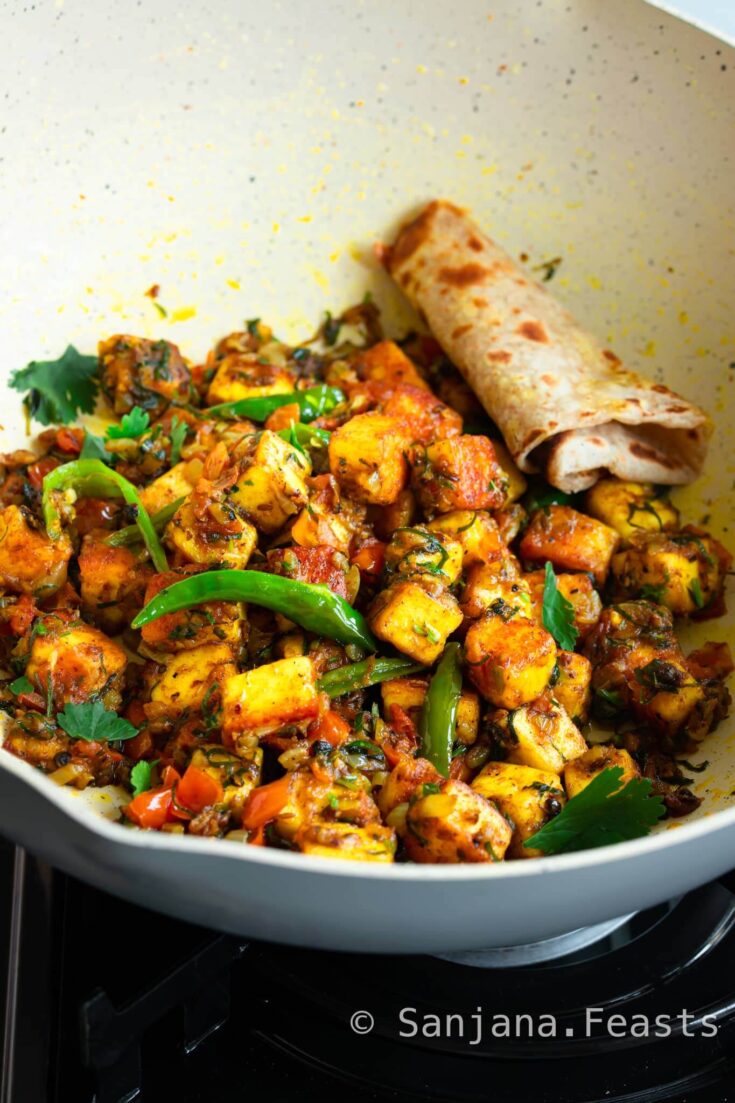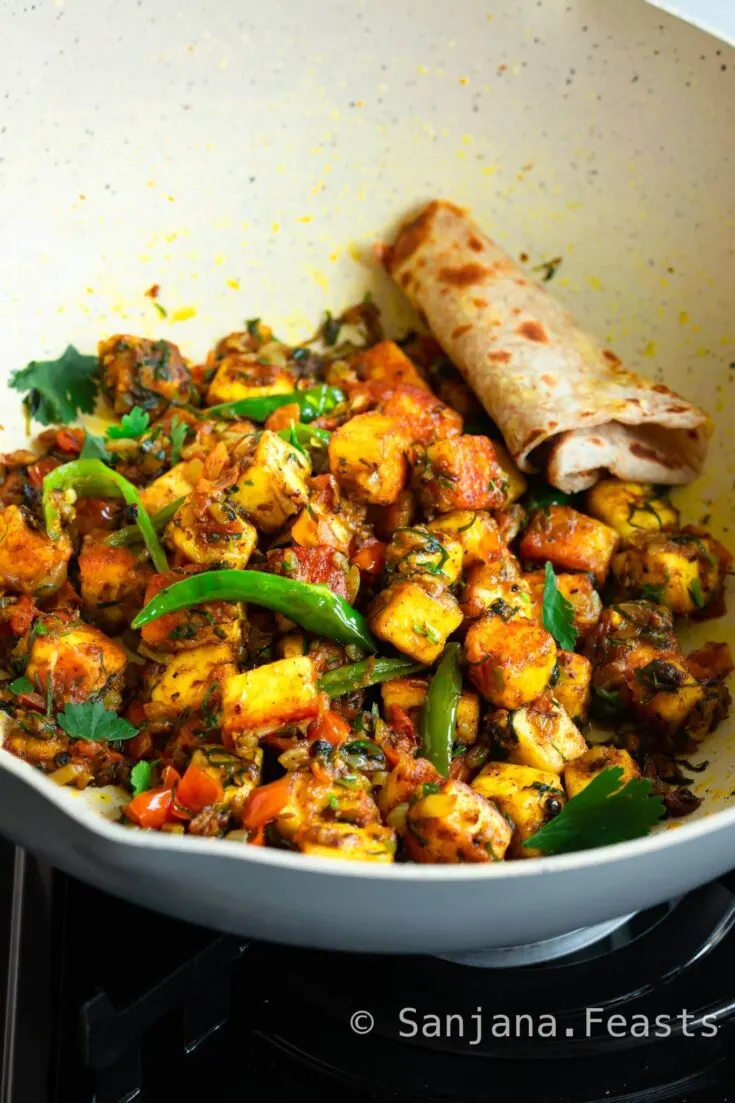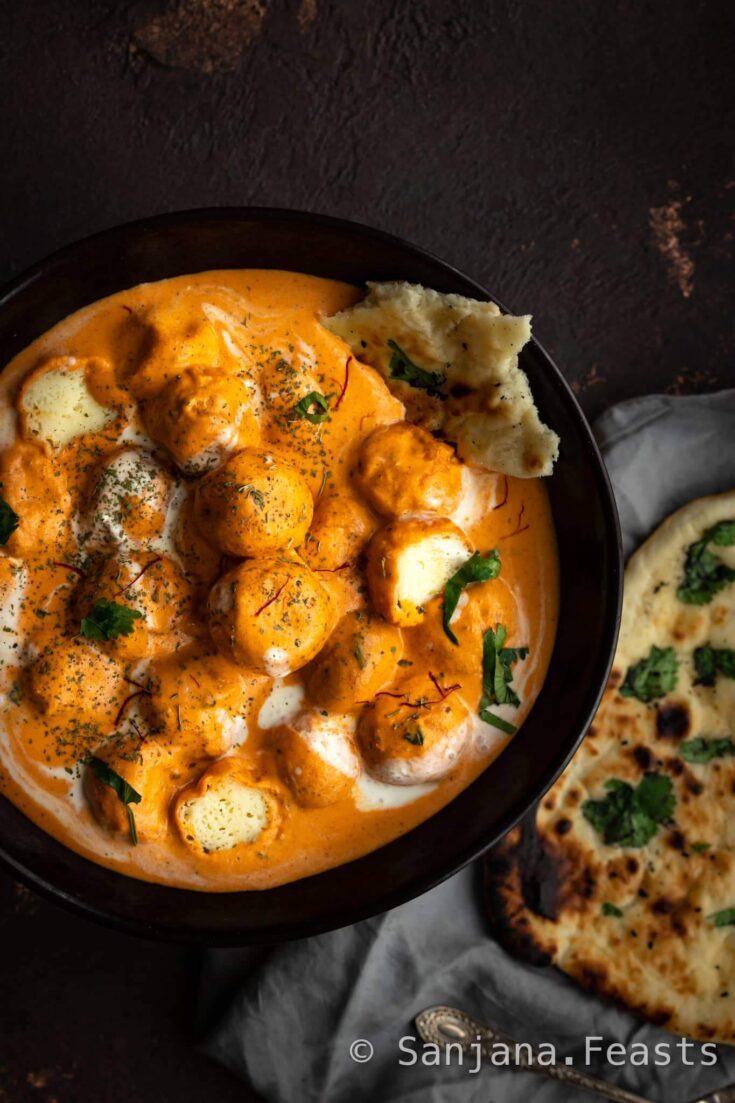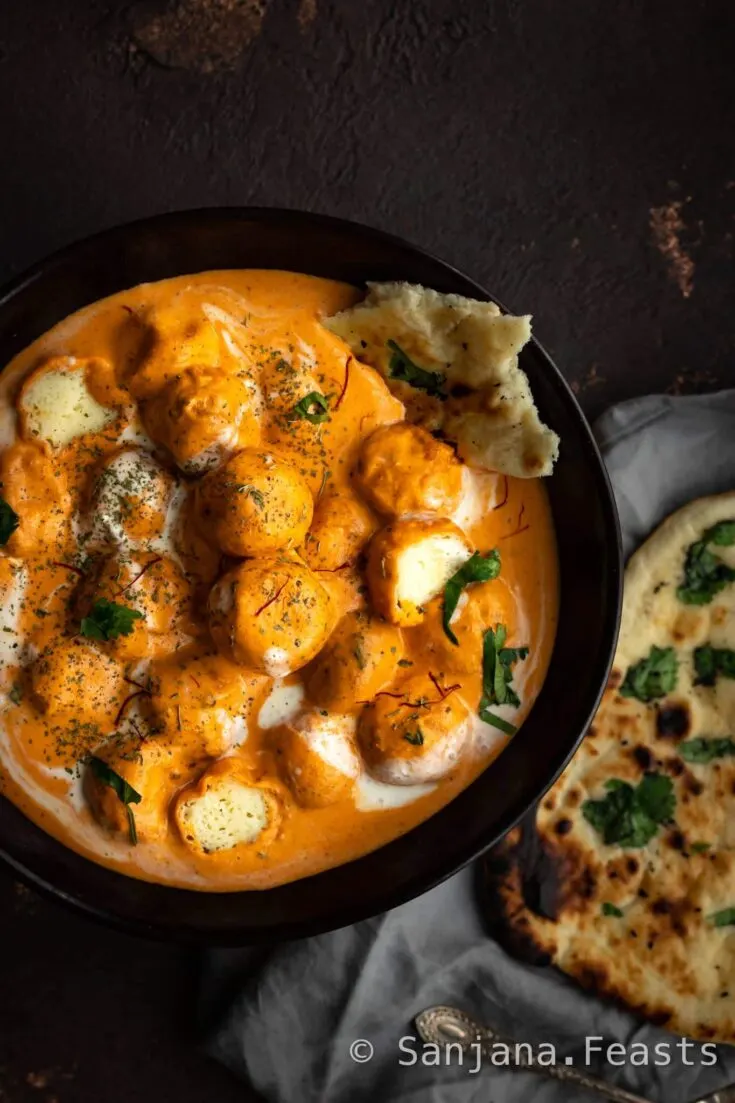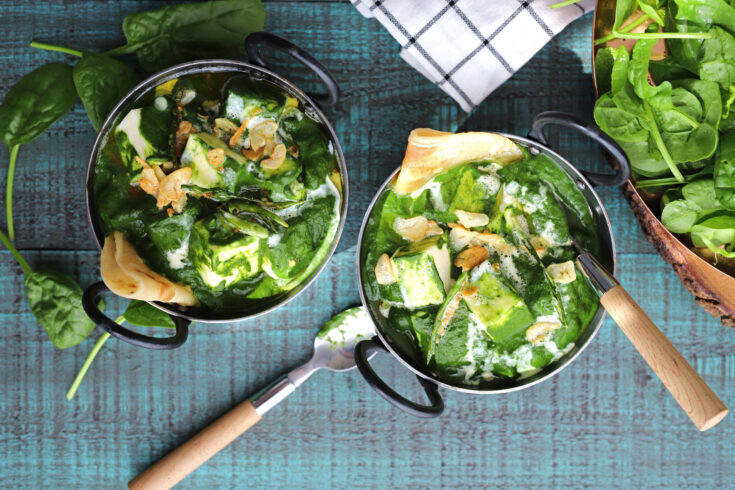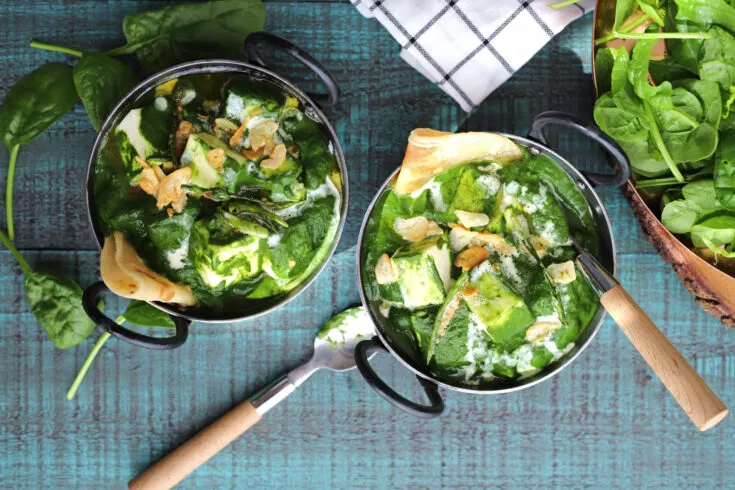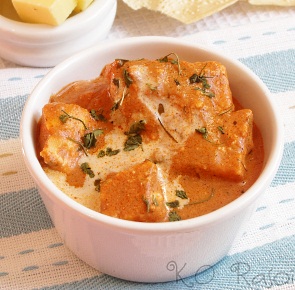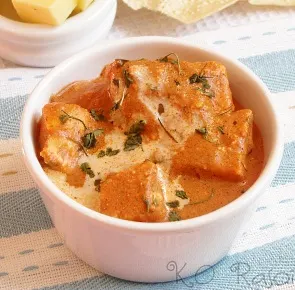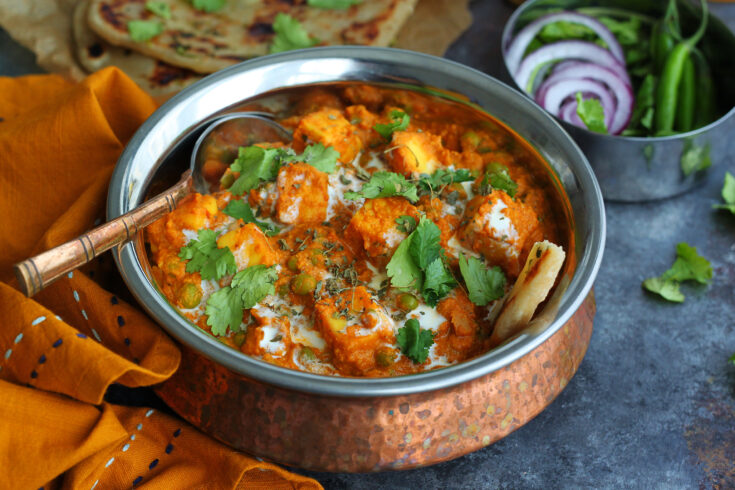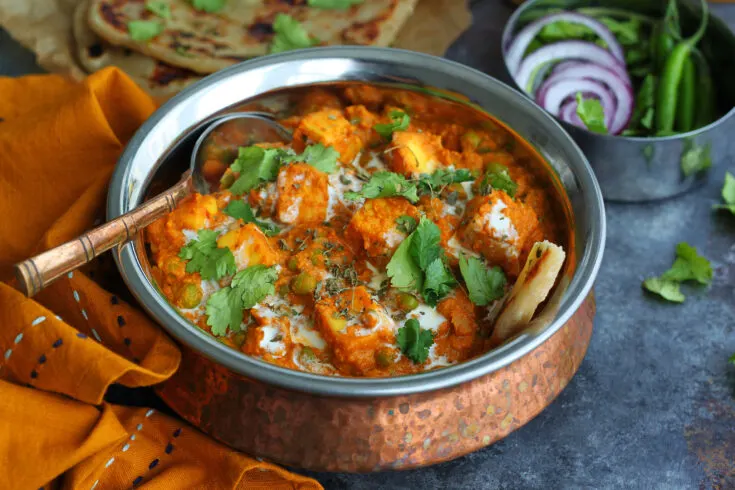The texture is soft and chewy, just like all great naan recipes. The first time I tried it, I couldn’t believe how similar the taste and texture is to regular naan made with wheat flour.
A soft and chewy texture
Indian naan is best eaten with your favourite Indian curries and daals. You can tear, scoop and dunk this flatbread without the naan falling apart.
This gluten free naan recipe contains…
No yeast No yoghurt Easy to find ingredients No eggs or dairy
Spread with garlic and coriander butter, if desired. You won’t believe how easy it is!
Ingredients for gluten free naan
Gluten free self raising flour – I use ‘Freee Foods’ by Dove’s Farm. You can buy it in most large supermarkets or substitute it for your favourite brand. Note that there may be subtle differences between brands but you must use a flour blend like this and not just any flour made of single grains as the recipe will not work. Dove’s Farm Freee lists ingredients as ‘Flour Blend (Rice, Potato, Tapioca, Maize, Buckwheat), Raising Agents (Mono-Calcium Phosphate, Sodium Bicarbonate), Thickener (Xanthan Gum)’. Hot kettle water – Adding hot water straight from the kettle is an old Indian technique for keeping homemade bread like naan and roti soft. When working with wheat flour, the hot water inhibits gluten formation (keeping the roti softer for longer). However, with a gluten free flour blend, the hot water activates the natural starch in the grains, thus creating a dough with greater elasticity. The xanthan gum in the flour blend also helps with binding. Optional add-ins to make your naan taste more like an Indian restaurant-style naan – Nigella seeds (kalonji), salt, sugar and garlic and coriander butter.
Wait, no yoghurt?
Adding yoghurt to this gluten free naan recipe isn’t necessary. In fact, not all naan recipes call for yoghurt. The purpose of adding yoghurt to naan is to quickly mimic the properties fermentation by adding flavour and promoting a tender finish. However, when working with gluten free flour, you’re already going to obtain a soft finish if you use hot water for binding the dough (remember the starch!). The optional add-ins like nigella seeds (which are also added to traditional naan recipes) will give the bread a great flavour. Sugar is added to promote browning and give the bread depth of flavour. This recipe and method cuts out unnecessary ingredients and steps. Super straightforward!
Where does naan come from?
An early version of leavened bread in India/Hindustan dates back to 1300 AD, after the Egyptians introduced yeast to the subcontinent. It’s said the Naan we have now come to know through Indian cuisine was later influenced by Persia and the Mughal Empire (1526–1761). The word ‘Nan’ in Persian means bread. It was food for nobility, typically served with kebabs and other grilled meats, and mostly in the northern regions. The concept of tandoor (clay oven) cooking was also adopted. Over time, naan has been shaped into what we know it as today; A leavened flatbread that’s both soft and chewy.
Steps for making gluten free naan
Measurements for ingredients in the recipe card below.
Step 1 – Mix the dry ingredients
Stir together the gluten free flour, nigella seeds, salt and sugar.
Step 2 – Add hot kettle water
Pour the water in, mix briefly with a spoon until cool enough to handle. Knead for 4-5 minutes and then cover with cling film.
Step 3 – Divide dough into pieces and shape
Divide the naan dough into 6 equal pieces. One by one, knead the dough into a smooth ball. Lightly dip both sides in flour and and shape into rounds by patting into a circle about 3mm thick. You can also very gently roll with a rolling pin.
Step 4 – Cook the gluten free naan
Gently lift the dough and quickly place it onto a pre-heated non stick pan. It should bubble within 5-10 seconds (if it doesn’t, the pan isn’t hot enough). After 30-40 seconds, turn the naan using a metal or silicone spatula or turner. The cooked side should be white and very lightly brown flecked all over. Cook the second side for 20 seconds or so before using a pair of metal tongs to hover it over the open flame of a small ring on the hob. This will give the naan a delicious tandoori-like finish by charring it on some places. It may also rise if you naan is rolled evenly. If you don’t want to do this, you can cook it for longer in the pan, until the desired browning is achieved. Note that the longer you keep it in the pan. The more likely it is to dry out and crack so try to keep the heat high and the cooking time brief.
Step 5 – Brush with garlic and coriander butter
Place the naan in a clean, dry tea towel. Brush with garlic and coriander butter before serving. As you cook the naans, stack them on top of each other to keep them soft). Serve immediately,
Gluten Free Naan Recipe (Indian Restaurant Style) | How to make gluten free naan
If you like this, you’ll love my recipe for Gluten Free Roti (3 Ingredients!)
What to serve with naan
Dal Makhani (Indian black daal) Spinach and Mushroom Curry Cabbage and Potato Curry Shahi Daal
With love and gluten free naan,
These gluten free naan are best eaten immediately.You can store them in an insulated container for up to a hour, after which time they may begin to dry out. To reheat, brush with some water and reheat in a pan (covered for a few minutes).
Sanjana Share this recipe This recipe for Matar Paneer is also easy to make, making it an amazing option for home cooks or people new to Indian food. Matar Paneer is typically served with rice, naan or roti, but feel free to choose your favourite accompaniments. If you’re not a bread lover, this Shahi Paneer also pairs beautifully with rice, should you wish to opt for a simple curry and rice bowl for dinner. Pieces of paneer (cottage cheese) and vegetables are first marinated in yoghurt and spices, and then skewered and grilled to smoky perfection. The tikka pieces are then removed from the skewer and folded into a creamy curry sauce made with tomatoes, spices and cream. Here’s an easy to follow video recipe and video. Saag Paneer is the more character-laden cousin of Palak Paneer, made with mixed greens like mustard leaves (sarson) instead of spinach alone. The velvety texture and subtle spicing of this recipe for Saag Paneer ensures the peppery mustard leaves and juicy paneer are the true stars of the show. Combine aromatic spices with a creamy cashew and tomato base, gently brown some butter in a pan and create the Makhani-style sauce of your dreams. This is the only way I’ll make Paneer Makhani from now on. A kadai-fried curry like this (without too much sauce) is perfect to serve with naan, roti or paratha. I even like using it as a dosa filling when making Paneer Masala Dosa. If you prefer your Paneer Curry with a thick Indian gravy, try Paneer Makhani or Matar Paneer. My simple paneer and potato kofta are golden on the outside and a brilliant white colour on the inside. Each bite is soft, a little spongy and slick with a smooth and creamy tomato sauce. In my home, Malai Kofta is an essential curry for special occasions. This Indian vegetarian curry of paneer (cheese) and potato kofta is a real celebration of rich flavours and warming spices. The trick to a super green sauce is to cook the spinach as little as possible. Just apply enough heat to wilt it at the beginning and heat the finished sauce just to warm all the ingredients through. Hand me a teardrop sheet of puffy, soft naan to mop up all of that sauce and I’m in seventh heaven. The base gravy for this Matar Paneer recipe contains ground almonds and tomatoes for a delectable creaminess and sharp tang. The spicing is warm but complex, making you wonder if you really just made that at home in the comfort of your own kitchen, without having to go to a restaurant or pick up a takeaway menu. Mad skills.

